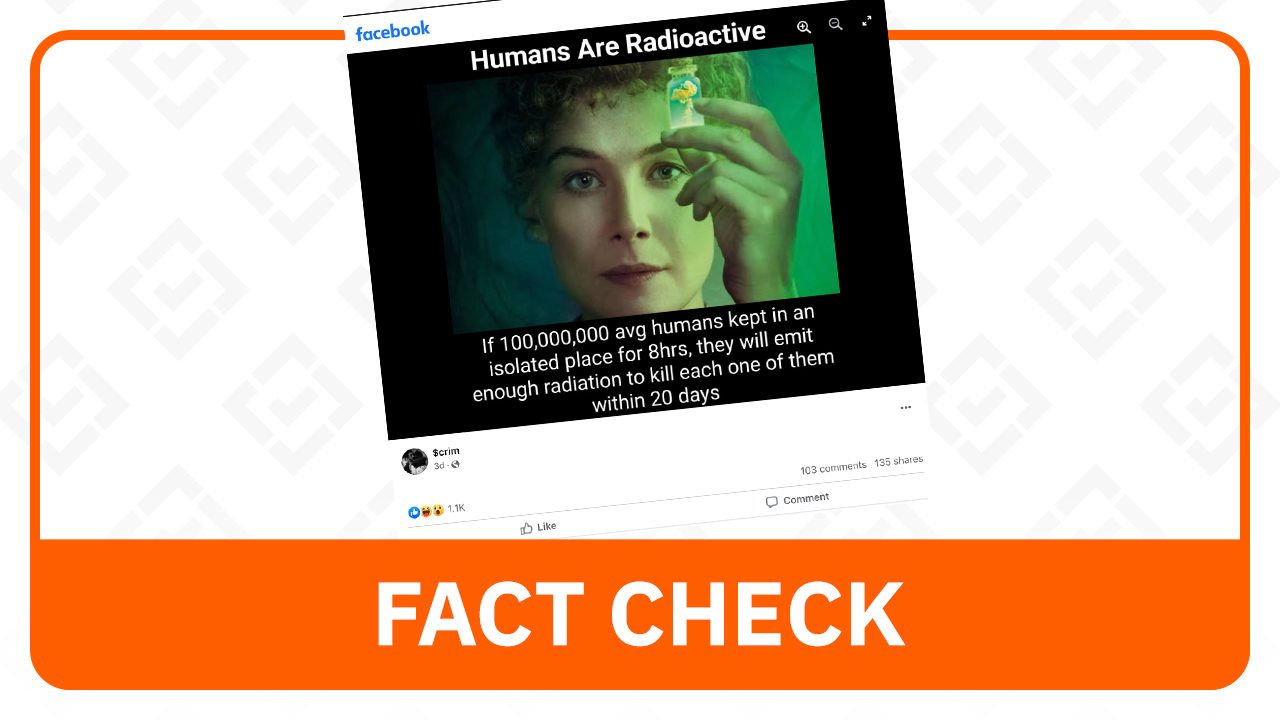SUMMARY
This is AI generated summarization, which may have errors. For context, always refer to the full article.

Claim: A social media post claims that 100 million humans of average size and weight kept in an isolated place for eight hours will emit enough radiation to cause human death in 20 days.
Rating: FALSE
Why we fact-checked this: The Facebook post has 135 shares and over 1,000 reactions as of writing. The post was also shared to a group with over one million members.

Incomplete, inaccurate calculation: The human body contains several radionuclides, which are elements that release radiation. The main source of radioactivity in the body is the natural radionuclide Potassium-40 while the others are all too small in amount to be detected. According to various data, an adult person weighing 70 kilograms contains 4,000 to 5,000 becquerel (Bq) of Potassium-40.
This amount of radionuclides, however, does not simply equate to the amount of radiation emitted by the human body. Making this assumption leads to inaccurate amounts such as what’s stated in the false claim.
A question-and-answer page from the Health Physics Society website calculated the correct amount based on the accurate distribution of 4260Bq of Potassium-40.
The calculation arrived at 1.85 x 10-7 or 0.000000185 Gray (Gy), which is the total radiation dose an individual receives from 100 million people in eight hours.
To easily perceive radiation dose, scientists use the banana equivalent dose (BED). BED is an informal unit of measurement of radiation exposure intended to compare radiation dose to the amount of average-sized bananas eaten. Scientists use bananas since they contain Potassium-40.
The radiation dose of 0.000000185Gy equates to 1.85 BDE or eating a little less than two average-sized bananas.
Radiation sickness: Acute Radiation Syndrome (ARS), also known as radiation sickness, is the acute illness acquired when an entire body absorbs a high dose of radiation in a very short period of time, usually in a matter of minutes. A high dose of radiation is greater than 0.7 Gy (7 million BDE).
Examples of major incidents in history that caused people to suffer ARS are the atomic bombings in Hiroshima and Nagasaki in Japan, and the nuclear explosion at the Chernobyl Nuclear Power Plant. – Laurice Angeles/Rappler.com
Laurice Angeles is a Chemistry graduate at the University of the Philippines-Diliman. She is a volunteer under Rappler’s Research unit.
Add a comment
How does this make you feel?
There are no comments yet. Add your comment to start the conversation.